This summer, Commission Shift read a number of books relating to organizing, energy, Texas politics, the environment, and more. Learn more about our favorites below.
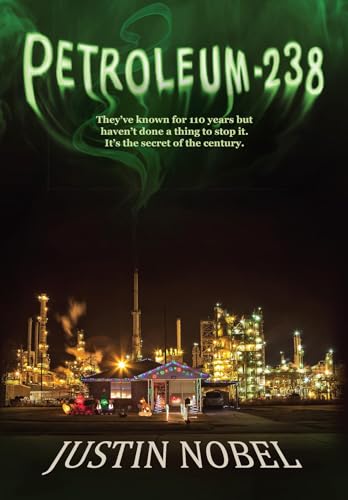
Petroleum 238 by Justin Noble
Petroleum 238 is a meticulously researched book about the problem of oilfield waste disposal, often in the form of radioactive dust and sludge laced with heavy metals. The enormous scope of the problem is documented across the country, even featuring some Texas voices in its pages by Commission Shift contacts and allies, including Sister Elizabeth Riebschlaeger. Notably, Chapter 12 contains a multi-page long list of Texas bodies of water — including creeks, lakes, aquifers, irrigation wells and more — that have been contaminated from oilfield waste based on testing (pp 248-252). The list was compiled by Texas agencies in the 1960s and 1970s, yet none of this information is readily available today, and the Railroad Commission does not currently test water at sites with leaks and spills.
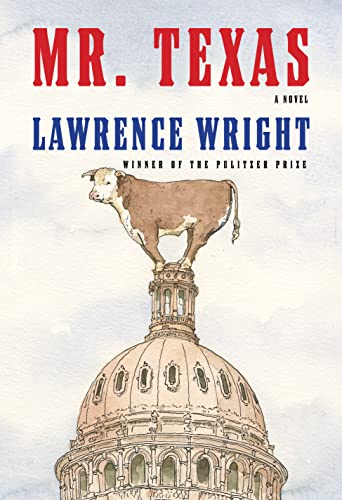
Mr. Texas by Lawrence Wright
In Mr. Texas, nonfiction author Lawrence Wright takes on the Texas political landscape — with its very real challenges and dynamics — and transforms it into a humorous and lively fictionalized saga following Sonny Lamb, an everyman West Texas rancher, recruited by an Austin lobbyist to run for public office. Orphaned wells, geysers and the oil and gas industry figure heavily into the plot as Sonny attempts to get his life together, find his political footing, and solve real problems in his district.
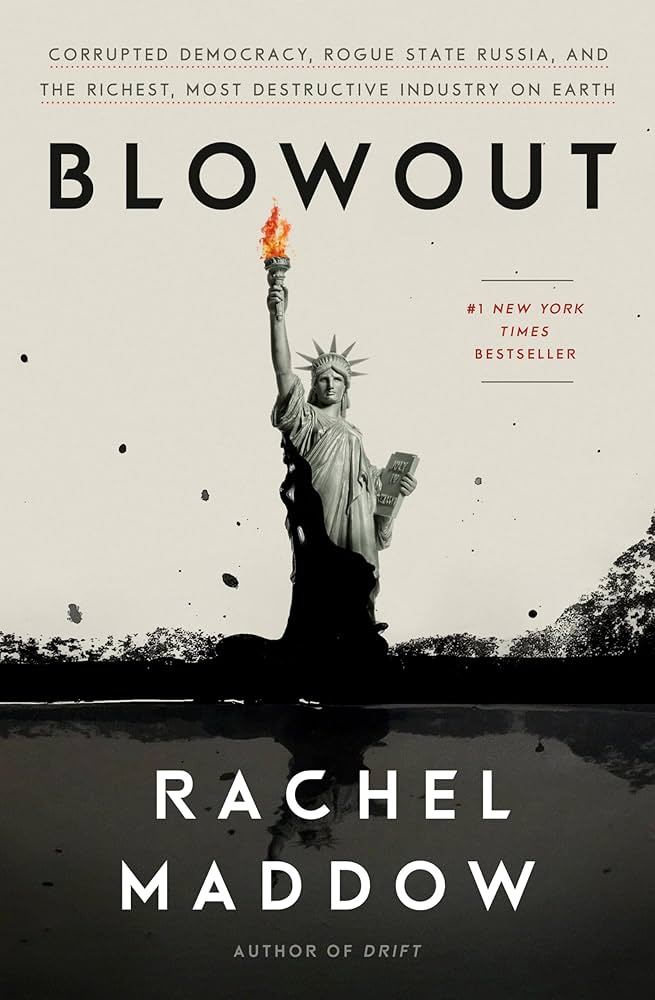
Blowout: Corrupted Democracy, Rogue State Russia, and the Richest, Most Destructive Industry on Earth by Rachel Maddow
This is a deep dive into a history of oil and gas that describes how big oil has weakened democracies, avoids cleaning up their pollution, and props up authoritarian governments. This relevant history brings Russia into the story and helps us understand the geopolitical forces at play today. Maddow captivatingly tells this story so we better understand what forces are in effect today that we must redirect if we want to forge a new path forward.
From the book: “Standard DNA is shot through the oil industry, as are Standard’s dominant traits: a penchant for pinching pennies, an eagerness to devour and expand, a mistrust and even hatred of government regulation, a vaguely delusional sense of higher calling, and a wary respect for innovation. Worth keeping these traits in mind, because they’ve gone on to shape the modern world. They still function as a character sketch—or maybe a psychological profile—of the richest, most powerful, and most destructive industry on the globe.”
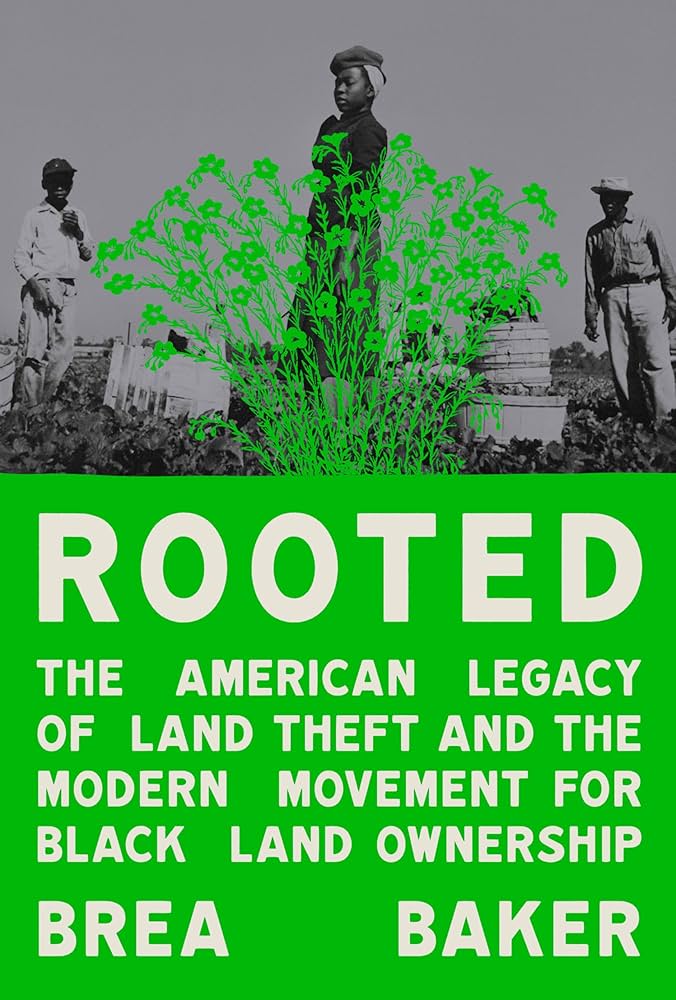
Rooted: The American Legacy of Land Theft and the Modern Movement for Black Land Ownership by Brea Baker
“Rooted” by Brea Baker was published this year two days before Juneteenth. In Rooted, Baker tells the story of her family’s legacy of land ownership while recounting statistics, historical records, and oral histories documenting the way that Black and Indigenous people have been intentionally excluded from land ownership in the United States. The book resonates with me as a Latina landowner because people of color make up fewer than 15% of all landowners in Texas. A much smaller percentage of these landowners are female. The racism that has led to these disparities is part of a broader paradigm that has cascading negative impacts for the health and well-being of all Americans, regardless of race.. Moreover, Baker’s research invites us to consider the benefits of a liberated, decolonized, and racially equitable agricultural economy in the United States.
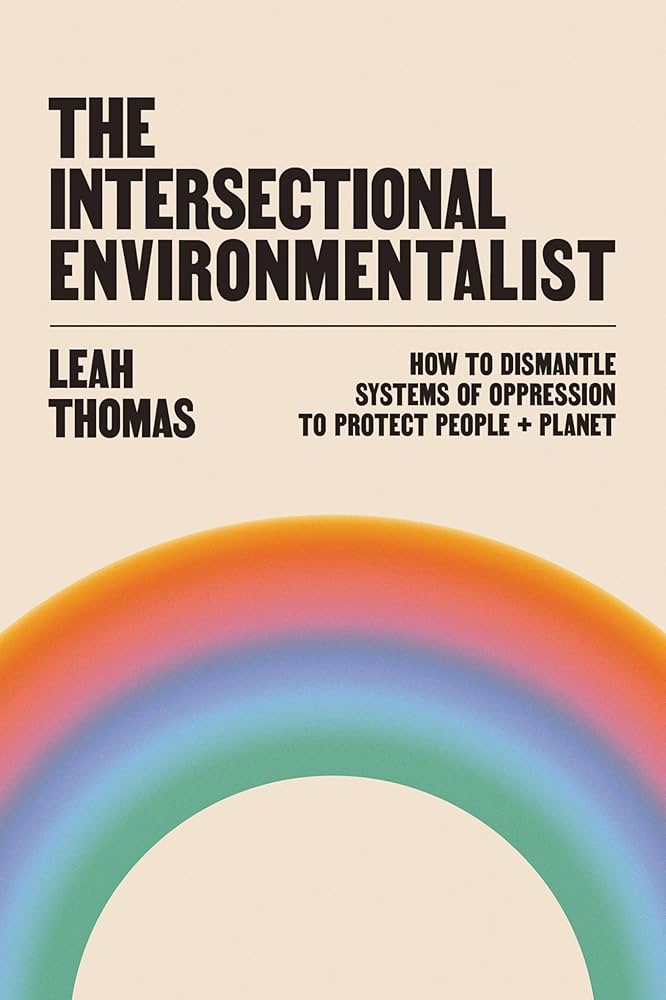
The Intersectional Environmentalist by Leah Thomas
I heard about this book during the Training For Impact, hosted by the Climate Lab cohort last year. I want to read it because I want to learn more about organizing from a social justice lens. To me, as a person of color, it’s important to understand the systems that have played a big role in destabilizing Black and Indigenous communities and communities of color communities through climate change and a lack of mitigation, oversight, and compassion.
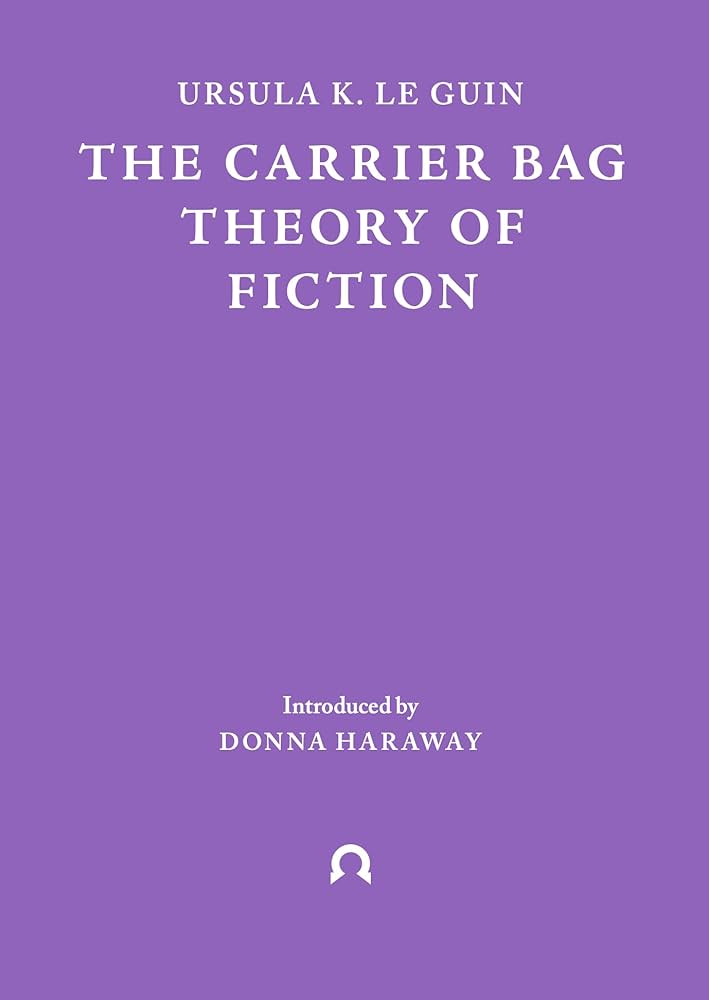
The Carrier Bag Theory of Fiction by Ursula K. Le Guin
When I first read this, it reminded me of our own humanness and how we all hold value even when we’re not the “action heroes” of the story. It talks about how we hold and collect things – stories, memories, etc.
As a person of Mexican descent who identifies as Mestizo and honors my Indigenous heritage as well as learns/unlearns from the colonial harm since time immemorial, I seek out understanding and undoing through Indigenous knowledge. When I am stuck in organizing and in my personal life, I also seek out radical, creative and transformative ideas in my reading selections that remind me that the impossible is possible.
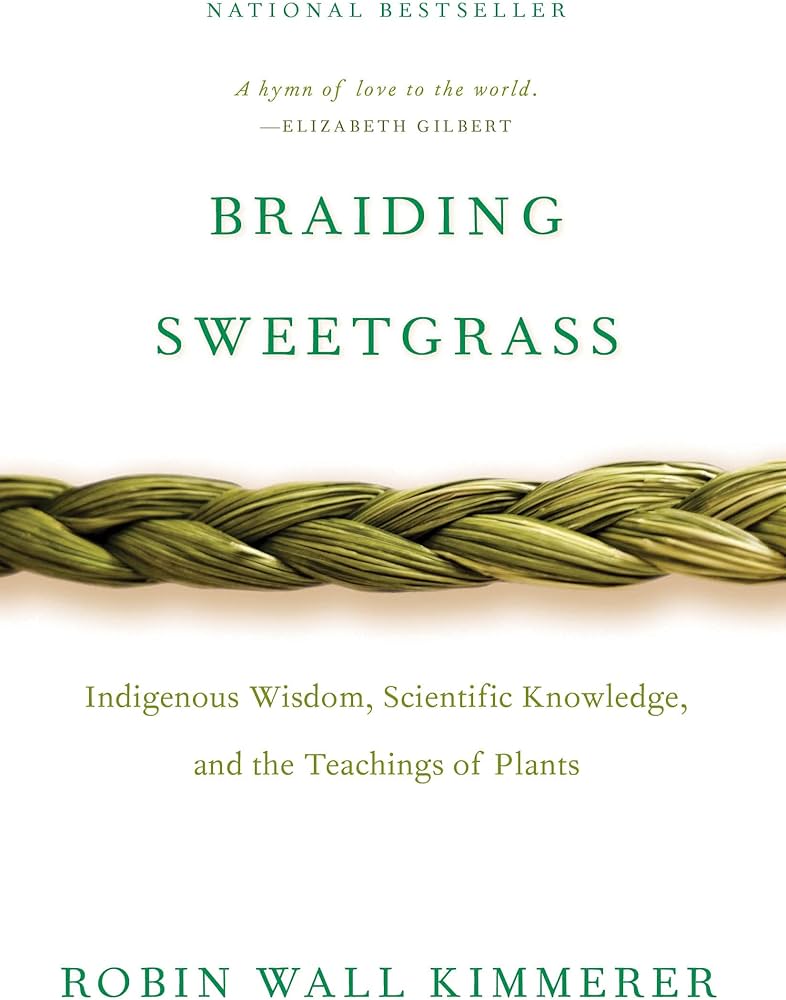
Braiding Sweetgrass: Indigenous Wisdom, Scientific Knowledge and Teaching of Plants by Robin Wall Kimmerer
From the book: “At first the Native people were distrustful of a plant that came with so much trouble trailing behind. But Nanabozho’s people knew that all things have a purpose and that we must not interfere with its fulfillment.”
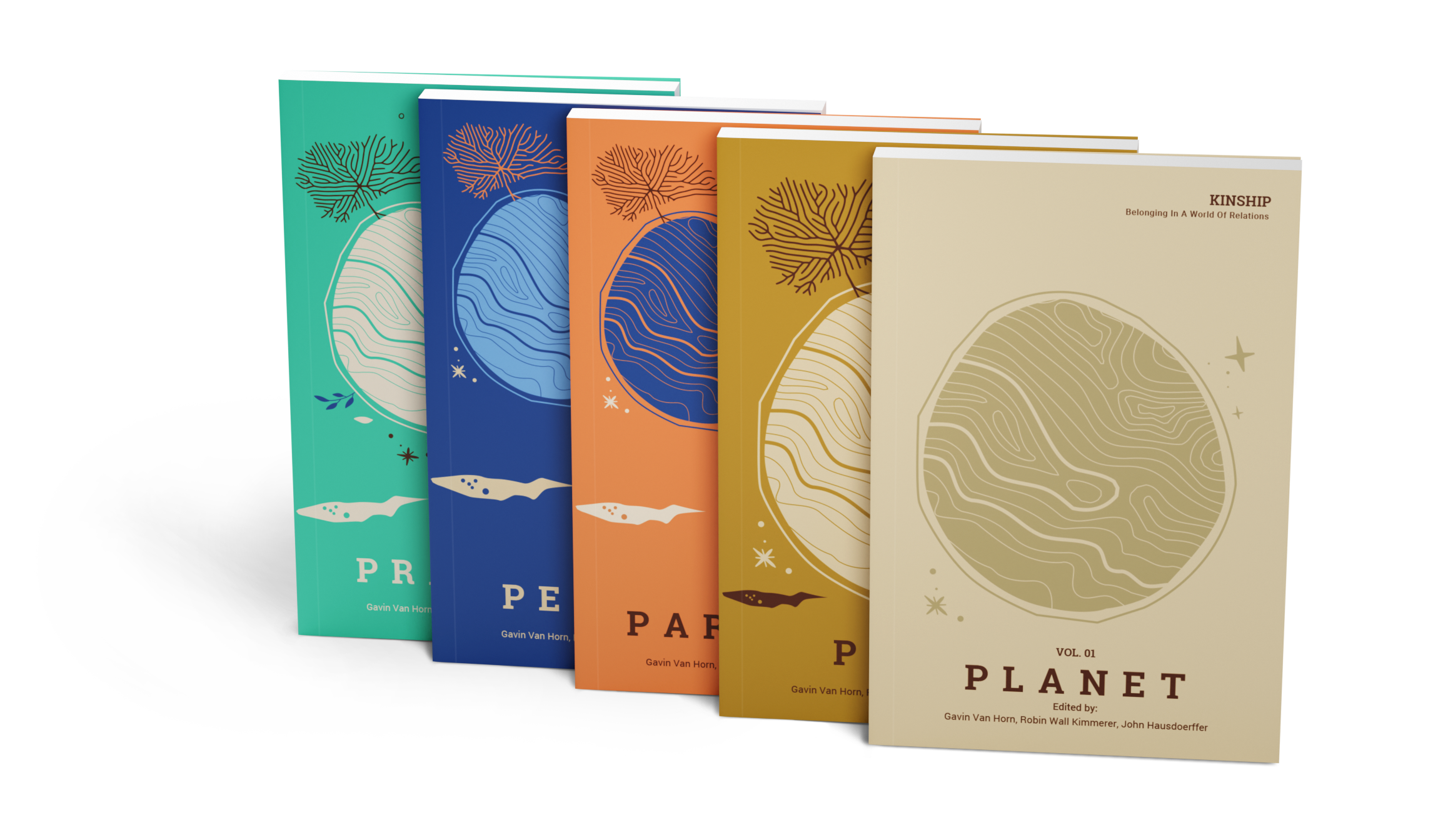
Kinship: Belonging in a World of Relations co-edited by Gavin Van Horn, Robin Wall Kimmerer, and John Hausdoerffer
From the book: “Kinship, it would seem, is key to understanding biotic and abiotic entanglement. A kincentric ecology emerges from cultures that recognize the importance of humans in maintaining right relations in particular landscapes. Far from presupposing that humans are a degrading force, sullying whatever we might touch, a kincentric ecology expresses the view that humans can actually play kestone roles in our landscapes, creating mutual flourishing.”
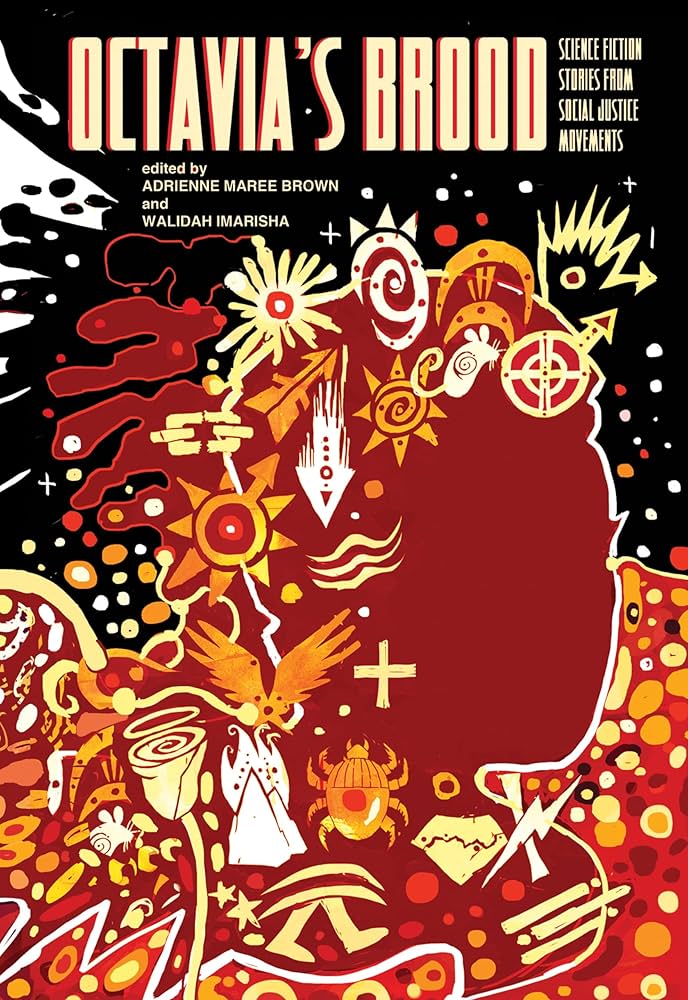
Octavia’s Brood: Science Fiction Stories from Social Justice Movements edited by Adrienne Maree Brown and Walidah Imarisha
From the book: “It is our right and responsibility to write ourselves into the future. All organizing is science fiction. If you are shaping the future, you are a futurist. And visionary fiction is a way to practice the future in our minds, alone and together.”